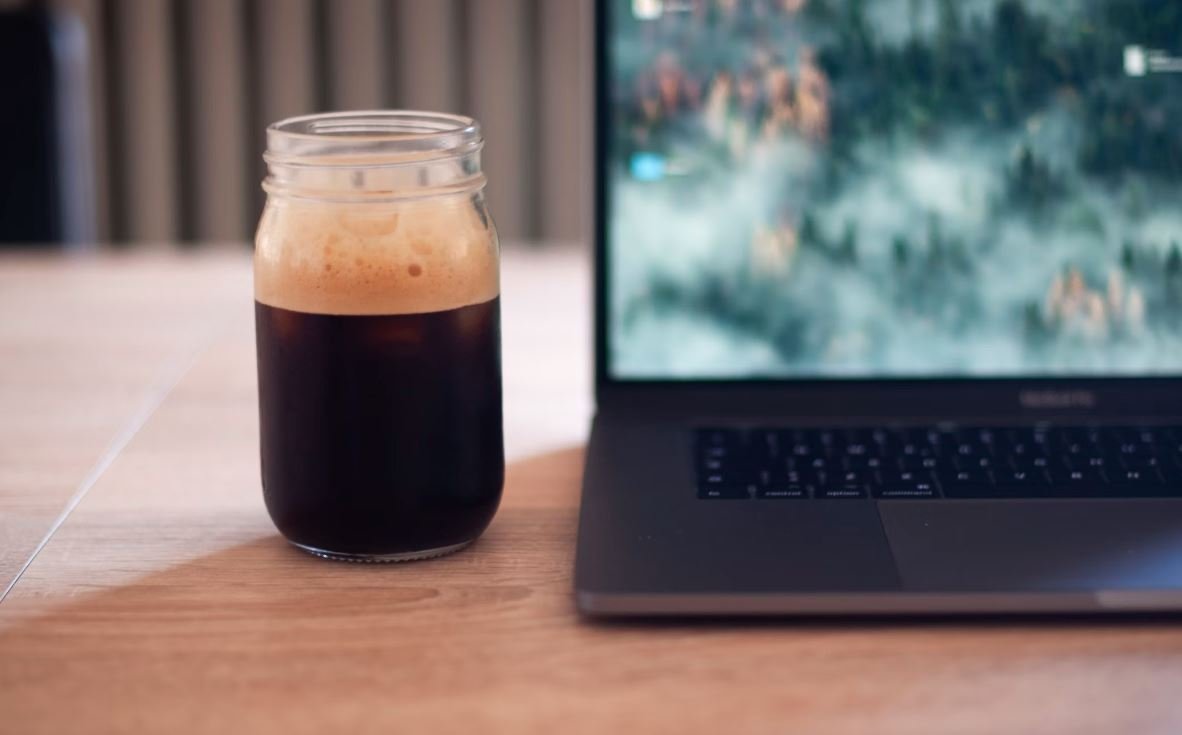Can I Video Record Someone in Public?
Recording videos in public spaces has become increasingly common in today’s digital age. With smartphones and other portable devices, capturing moments and documenting events has never been easier. However, amidst this convenience, questions arise about the legality and ethical considerations of video recording individuals in public. This article aims to shed light on the topic and provide important insights.
Key Takeaways
- It is generally legal to video record people in public, as long as it is not for malicious intent.
- Public figures may have limited privacy rights in certain situations.
- Always respect others’ right to privacy and obtain proper consent when recording sensitive situations.
Understanding Recording Laws
When it comes to filming people in public, laws can vary depending on the jurisdiction. However, in general, **recording someone in a public place** (where there is no reasonable expectation of privacy) is legal unless it constitutes an invasion of privacy or harassment. It’s important to note that capturing someone’s audio without their consent may have stricter regulations in some areas.
In the United States, the First Amendment protects the right to record video in public spaces. Courts have recognized the importance of **freedom of the press** and **freedom of speech**, allowing individuals to film matters of public interest, including law enforcement activities. These rights extend to both professional journalists and ordinary citizens.
Respecting Privacy Rights
While video recording in public is generally permissible, it is important to respect others’ privacy rights and exercise proper judgment. In some cases, individuals may have a reasonable expectation of privacy, even in public places. For instance, **bathroom facilities** or **changing rooms** are areas where privacy is clearly expected.
Moreover, **hidden camera recordings** or videos taken for **voyeuristic purposes** are illegal and highly unethical. Engaging in such activities can lead to legal consequences, as they violate individuals’ right to privacy and may carry criminal charges.
Consent and Sensitive Situations
In certain situations, it is considerate to acquire consent before recording someone, even in public spaces. When dealing with sensitive or personal matters, obtaining informed consent demonstrates respect and empathy towards others.
For instance, when interviewing a person about a personal or emotional topic on camera, it is advisable to explain the purpose and obtain their release form, stating they agree to be recorded. This ensures transparency and avoids any misunderstandings.
Recording Public Figures
Public figures, such as politicians, celebrities, and athletes, often have limited privacy rights in certain situations. These individuals work in the public eye and are subject to higher levels of scrutiny. When recording public figures in public spaces, it is important to ensure the content does not defame or unjustly harm them.
Table 1 below highlights some key considerations when video recording public figures:
| Situation | Permissible | Not Permissible |
|---|---|---|
| Public Speeches | Generally allowed | If expressly forbidden |
| Press Conferences | Usually allowed | If restricted by organizers |
| Personal Events | If recorded from a public area | If inside a private venue |
*Table 1: Considerations when video recording public figures
Recording for Legal Documentation
Video recordings can serve as valuable evidence in legal matters, especially in instances of accidents, disagreements, or encounters with law enforcement. However, it is crucial to ensure that recordings are made in accordance with local laws, without infringing on others’ rights or interfering with official procedures.
Table 2 below illustrates some situations where video recording can be useful:
| Situation | Benefits |
|---|---|
| Car Accidents | Clear documentation of events |
| Police Interactions | Ensuring transparency and accountability |
| Protests or Demonstrations | Capturing potential civil rights violations |
*Table 2: Situations where video recording can be useful
Finally, it is worth considering how the proliferation of video recordings in public spaces impacts society. **Sharing videos online** has the potential to bring awareness to important issues and foster accountability for wrongful acts. However, it is essential to use this power responsibly, without engaging in **cyberbullying** or promoting unauthorized sharing of private details.
By understanding the legal boundaries, respecting privacy rights, and using video recording responsibly, individuals can navigate the complex landscape of video recording in public effectively.

Common Misconceptions
Misconception 1: Video Recording Someone in Public is Always Legal
One of the most common misconceptions is that you can freely video record anyone in public without any legal consequences. However, the legality of video recording someone in public varies depending on the jurisdiction and the specific circumstances. It is important to be aware of these legalities to avoid potential legal issues.
- Legal restrictions on video recording can vary by country, state, or city.
- Recording someone without their consent in private areas, such as a bathroom, is almost always illegal.
- Some jurisdictions require consent or notice in specific situations, such as when recording conversations.
Misconception 2: Video Recording in Public is an Invasion of Privacy
Another common misconception is that video recording someone in a public place is automatically an invasion of their privacy. While privacy concerns may exist depending on the circumstances, most legal systems recognize that individuals have a diminished expectation of privacy in public spaces.
- Privacy expectations may vary depending on the location. For example, recording in a public park may be seen as less invasive than recording inside a person’s home.
- Recording someone in public may be considered a form of public surveillance, which serves various purposes, including crime prevention and evidence gathering.
- Privacy laws often balance the individual’s right to privacy with the public interest in information and freedom of expression.
Misconception 3: Video Recording in Public Requires Consent
Contrary to popular belief, video recording someone in public generally does not require their consent in most jurisdictions. Public places are generally deemed to have limited privacy expectations, and individuals can be recorded without their consent as long as it does not violate specific laws.
- Most legal systems consider public spaces as areas where individuals have a reduced expectation of privacy.
- Consent requirements are often more relevant in specific situations, such as recording conversations or when filming on private property.
- Even without explicit consent, it is still important to be considerate and respectful of others’ privacy and use discretion when recording.
Misconception 4: Video Recordings in Public Can Be Shared Freely
Although video recording someone in public may be legal, there are still limits on what you can do with those recordings. Sharing video recordings without the person’s permission can potentially infringe on their privacy rights or lead to other legal issues.
- Sharing video recordings on social media platforms without consent may be seen as a violation of privacy, particularly if it targets or harms someone.
- Sensitive information captured in video recordings, such as identification or personal conversations, should be treated with discretion to avoid potential harm or misuse.
- Understanding the specific laws and regulations regarding sharing video recordings, such as copyright and defamation laws, is crucial to avoid legal consequences.
Misconception 5: Video Recording in Public is Always Acceptable Ethically
While the legality of video recording someone in public can vary, there is also an ethical dimension to consider. Just because something is legal does not necessarily mean it is morally acceptable in all situations.
- Consider the impact of recording on the person’s privacy and reputation before deciding to record.
- Respect the cultural and social norms of the particular location you are in.
- Use discretion and judgment when recording to avoid causing harm or distress to others.

States with the Strictest Laws for Video Recording in Public
Video recording in public has become a controversial topic, with laws varying from state to state. This table illustrates the top five states with the strictest regulations regarding video recording in public places.
| State | Classified as a Crime? | Penalty | Consent Requirement |
|---|---|---|---|
| Oregon | Yes | Felony | Two-Party Consent |
| Illinois | Yes | Felony | Two-Party Consent |
| Washington | Yes | Felony | Two-Party Consent |
| New Hampshire | Yes | Felony/Misdemeanor | One-Party Consent |
| Massachusetts | Yes | Felony | Two-Party Consent |
Popular Public Places Frequently Videotaped
With the rise of smartphones and accessible technology, people now frequently record videos in public spaces. Here are five popular public places where video recording is commonly observed.
| Place | Common Videos | Benefits |
|---|---|---|
| City Streets | Tourist attractions, accidents, street performances | Evidence for legal purposes, entertainment |
| Parks | Nature, sports events, picnics | Documentation of events, memories |
| Concerts | Live performances, crowd reactions | Sharing experiences, promoting artists |
| Sports Stadiums | Matches, celebrations, player interviews | Social media content, reliving moments |
| Beaches | Sunsets, water activities, gatherings | Scenic captures, family memories |
Privacy Expectations in Public Spaces
Understanding privacy expectations in public areas is crucial when discussing video recording legality. This table highlights different privacy expectations based on the specific public space.
| Public Space | High Privacy Expectations | Low Privacy Expectations |
|---|---|---|
| Restrooms | High | Low |
| parks | High | Medium |
| City Streets | Medium | Low |
| Sports Stadiums | Low | Low |
| Concerts | Low | Low |
Most Commonly Recorded Incidents in Public Spaces
Recording incidents in public spaces has become an influential tool for raising awareness. The following table presents five types of incidents that are commonly recorded in public.
| Incident Type | Description | Impact |
|---|---|---|
| Police Brutality | Unreasonable force, brutality against civilians | Raise awareness, promote accountability |
| Accidents | Car crashes, slip and falls, workplace incidents | Evidence, insurance claims, legal disputes |
| Public Fights | Altercations, brawls | Humor, viral content |
| Unexpected Events | Natural disasters, animal encounters | Informative, entertainment |
| Celebrity Sightings | Famous individuals in public | Entertainment, social media buzz |
Video Recording Laws in Relation to Journalistic Activities
Journalists play a crucial role in documenting events and informing the public. This table highlights the legal considerations surrounding video recording for journalists.
| State | Journalistic Exemption? | Press Card Required? | Additional Restrictions |
|---|---|---|---|
| California | Yes | No | Obtain written consent for private conversations |
| New York | Yes | No | No recording in confidential locations |
| Florida | Yes | No | No recording in healthcare facilities |
| Texas | No | Yes | Press card required for recording |
| Georgia | Yes | Yes | Obtain consent except when public figures are involved |
Public Opinion on Video Recording Rights
Understanding public opinion on video recording rights can shed light on societal perceptions. This table presents data from a survey about public opinions regarding video recording in public spaces.
| Question | Percentage in Favor | Percentage Opposed |
|---|---|---|
| Should people be allowed to video record interactions with law enforcement? | 85% | 15% |
| Is it acceptable to record someone without their consent if it’s for a significant public interest? | 67% | 33% |
| Should video recording be banned in public places altogether? | 22% | 78% |
Landmark Court Cases on Video Recording in Public
Several court cases have shaped the legality of video recording in public spaces. These landmark cases have set important precedents.
| Case Name | Court Decision | Outcome |
|---|---|---|
| Maryland v. King | Recording without consent is protected by the First Amendment | Clear affirmation of the right to record in public |
| Glik v. Cunniffe | Recording police in public is a protected First Amendment right | Supports accountability and transparency |
| Fields v. City of Philadelphia | Recording on-duty police is a constitutionally protected activity | Expands the right to record to include interactions with law enforcement |
| Tyler v. City of New York | Recording police can be seen as evidence of protected First Amendment activity | Strengthens the right to record in public places |
| Feliciano v. City of Cleveland | Recording police in public is recognized as a First Amendment right | Enhanced protections for recording interactions with law enforcement |
Video Recording Laws in Different Countries
Video recording laws vary internationally, with different countries adopting diverse approaches. This table displays the level of restrictions on video recording in public places in selected countries.
| Country | Legal to Record without Consent? | Journalistic Exemption? | Potential Penalties |
|---|---|---|---|
| United States | Varies by state | Yes, in most states | Varies by state, can range from fines to imprisonment |
| United Kingdom | Yes | Yes | Depends on violation severity, can lead to fines or imprisonment |
| Germany | Yes, with restrictions | Yes, in most cases | Violation of privacy laws can result in fines or imprisonment |
| Australia | Yes | Yes, in most circumstances | Can vary by state, but generally minor penalties such as fines |
| China | No | No | Severe penalties including imprisonment in some cases |
Conclusion
Video recording in public is a multifaceted topic entailing legalities, privacy considerations, and societal viewpoints. Understanding the differences in laws and expectations across states and countries provides valuable insight into the varied approaches to regulating video recording in public spaces. Landmark court cases and public opinion further shape the ongoing discourse surrounding this issue. Ultimately, awareness of the laws and public sentiment provides guidance to individuals who wish to responsibly exercise their video recording rights in public while respecting privacy and legal standards.
Frequently Asked Questions
Can I Video Record Someone in Public?
FAQs
-
Is it legal to video record someone in public?
In general, it is legal to video record someone in public spaces in the United States. Laws regarding video recording in public spaces may vary from country to country and even within different states. It is important to familiarize yourself with the specific laws in your jurisdiction to ensure compliance.
-
Do I need consent to video record someone in public?
In most cases, you do not need consent to video record someone in public spaces. Since these places are generally accessible to the public, individuals have a lower expectation of privacy. However, laws may differ, so it is advisable to research the laws applicable to your specific location.
-
Can I publish or share videos recorded in public without permission?
As long as you recorded the videos legally and the content does not violate any other laws, you generally have the right to publish or share them. However, it is always recommended to respect others’ privacy and be cautious about sharing content that may cause harm or infringe on someone’s rights.
-
Are there any restrictions on video recording in public spaces?
While video recording in public spaces is generally allowed, there may be some restrictions depending on the location. Certain areas, such as government buildings, private properties, or places where individuals have a reasonable expectation of privacy (e.g., restrooms), may have specific laws that prohibit or limit video recording. It is essential to be aware of and respect these restrictions.
-
Can I use video recordings of someone in public for commercial purposes?
Using video recordings of people in public for commercial purposes may require additional considerations. While you may have the right to record in public places, using someone’s likeness for commercial gain could potentially infringe upon their right to privacy or publicity. It is advisable to consult with a legal professional to understand the specific regulations governing this matter in your jurisdiction.
-
What should I do if someone objects to being video recorded in public?
If someone objects to being video recorded in public, it is generally courteous to respect their request. While you may have the legal right to continue recording, it is essential to be mindful of others’ comfort and privacy. If a situation escalates or there is a dispute, it may be best to involve local authorities or seek legal advice to ensure a peaceful resolution.
-
Can I record police officers in public?
In many jurisdictions, it is legal to record police officers in public while they are performing their duties. However, laws can vary, so it is advisable to review local regulations. It is essential to exercise caution and not interfere with police operations while recording. It is advisable to keep a reasonable distance and refrain from any actions that may be considered obstructive or illegal.
-
Are there any specific exceptions to video recording people in public?
There may be specific exceptions to video recording people in public, such as instances where privacy concerns or laws related to national security come into play. Additionally, harassing or intentional invasion of privacy situations may have legal consequences. Always be aware of and adhere to the laws, regulations, and ethical considerations of your jurisdiction when recording others in public spaces.
-
Can I be prosecuted for video recording someone in public?
In general, video recording someone in public, following legal guidelines, should not result in prosecution. However, if you violate specific laws, infringe upon others’ rights, engage in harassment, or use the recorded material for illegal activities, you may face legal consequences. It is crucial to act within the boundaries of the law and consider the rights and privacy of others.
-
How can I know the specific video recording laws in my area?
To determine the specific video recording laws in your area, it is recommended to consult local legislation or seek guidance from legal professionals. Additionally, you can research online resources, official government websites, or get in touch with local law enforcement agencies to obtain accurate and up-to-date information about video recording regulations in your jurisdiction.




